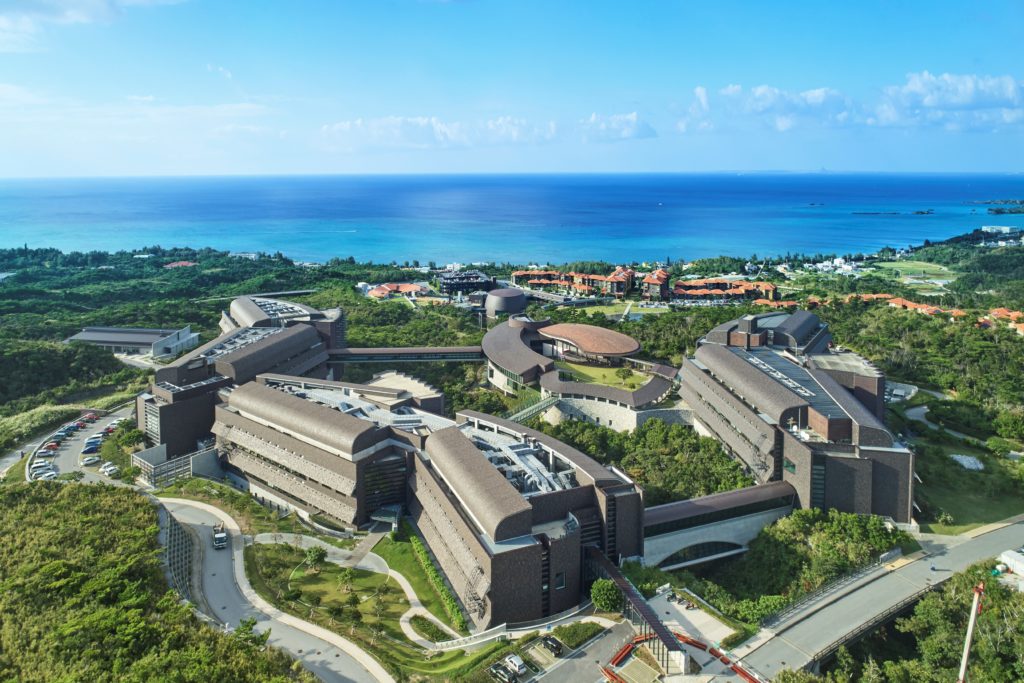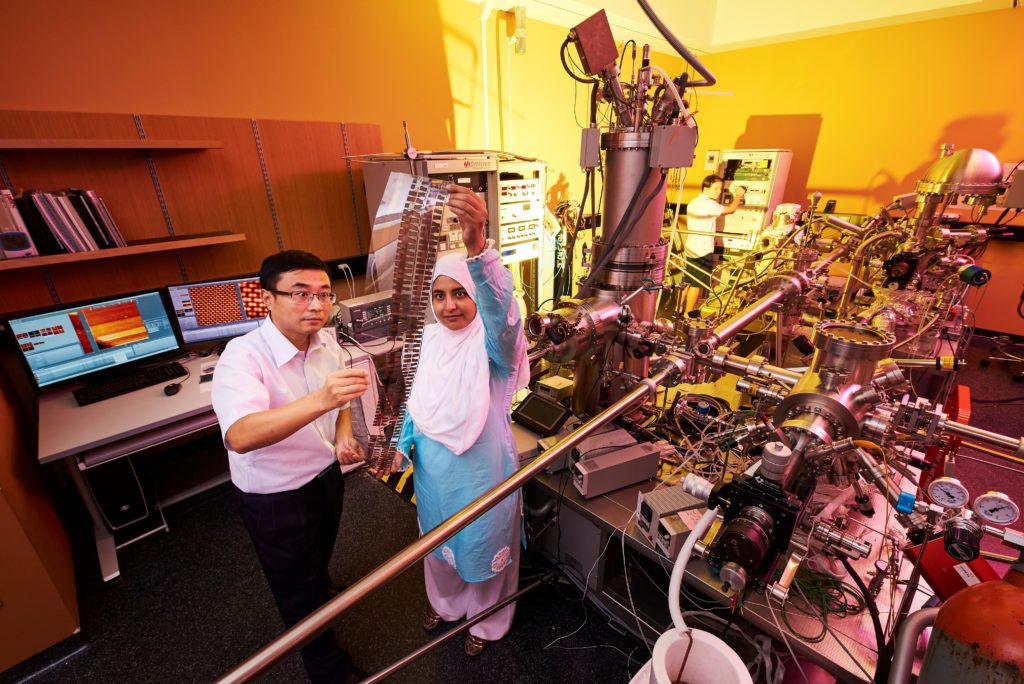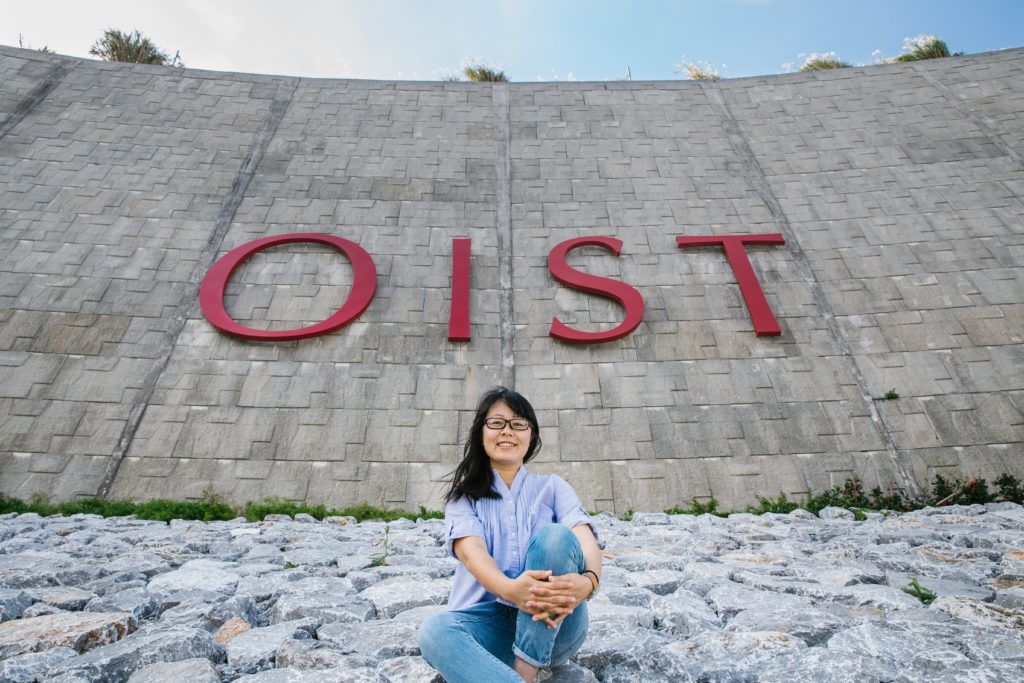The Okinawa Institute of Science and Technology is an interdisciplinary research university offering a five-year PhD program in science and engineering. It was founded by the Japanese government to contribute to science and technology worldwide, attract leading researchers from Japan and around the world to conduct high-quality research, educate the next generation of scientists, and contribute to economic sustainability in Okinawa.

History
OIST welcomed its first class of 34 PhD students in 2012. A plan for a graduate university in Okinawa had been announced more than a decade earlier by Mr. Koji Omi, Former Minister of State for Okinawa and Northern Territories Affairs and Former Minister of State for Science and Technology Policy. The Japanese legislature approved funding for an initial corporation in 2005 and Nobel laureate Dr. Sydney Brenner was named the first president. Dr. Jonathan Dorfan became the university president in 2012, with Dr. Peter Gruss taking over in 2017. Today, and since June 2023, Dr. Karin Markides serves in this role. OIST has grown to include five lab buildings and a marine science station. Over the last 12 years, more than 400 students have been admitted and today the OIST community consists of approximately 1,300 faculty, staff, and students.

Vision and Mission
At OIST, we shall conduct outstanding curiosity-driven research and internationally renowned graduate education. We shall explore intersections between disciplines, knowledge-building outreach, and an entrepreneurial environment where creative innovations are growing. We shall contribute to the sustainable and prosperous development of Okinawa and promote and sustain the advancement of science and technology in Japan and throughout the world.
Our core values include the following:
Excellence: We strive for excellence in everything that we do.
Respectfulness: We are committed to fostering a community which respects the rights of individuals.
Responsibility: We accept responsibility for our actions, and for the health, safety and wellbeing of ourselves and others.
Transparency: We embrace transparency and authenticity, acting honestly, fairly, and properly while maintaining the highest ethical standards in all things.
Sustainability: We aim for sustainability of the environment and in the promotion of Okinawa.
Diversity: We believe that creativity thrives in a diverse environment in which different cultures come together free from prejudice and discrimination.
Courage: We want to be pioneers in transdisciplinary research.
Freedom: We are committed to academic freedom which encourages innovation in a multidisciplinary environment.
Size and Scope
In the few short years since OIST welcomed its first students in September 2012, we have grown from 44 to 91 faculty members, enrolled 409 students, published nearly 4,000 academic journal articles and book chapters, accumulated 240 patents, constructed a marine station and five laboratory buildings, and currently employ over 1,000 administrative and research staff from 65 countries and territories. We are building a sustainable university that promotes curiosity-driven research in areas explored by free minds and in areas inspired by societal challenges. We are working to deliver the benefits to Okinawa, broader Japan, and the rest of the world.

Achievements
In July 2015, an External Peer Review Panel consisting of renowned scientists produced a report detailing OIST’s progress. The panel acknowledged the outstanding scientific success of OIST and noted “that the rapid achievement of the initial phase of the University results from the Japanese government’s steadfast commitment to the bold vision and to the generous financial support that has been provided.”

A 2021 review showed that “OIST has already reached a level of international competitiveness greater than any other Japanese university and has a performance comparable to that of RIKEN, Japan’s largest comprehensive research institution renowned for high-quality research in a diverse range of scientific disciplines.”
Japanese Prime Minister Shinzo Abe recognized the potential of OIST, noting the “prominent faculty whose work has Nobel prize potential and top-class students” in a speech.
Additionally, OIST was listed in the 2019 Nature Index Annual Table normalized rankings as first in Japan and ninth in the world for the number of high-quality articles published as a proportion of an institute’s overall output in the natural sciences. OIST was also shortlisted by the Times Higher Education Awards Asia 2019 for “Outstanding Support for Students.”
In 2022, OIST Adjunct Professor Dr. Svante Pääbo won the Nobel Prize in Physiology and Medicine for his significant contributions to the “discoveries about the genome of extinct hominids and human evolution.”
